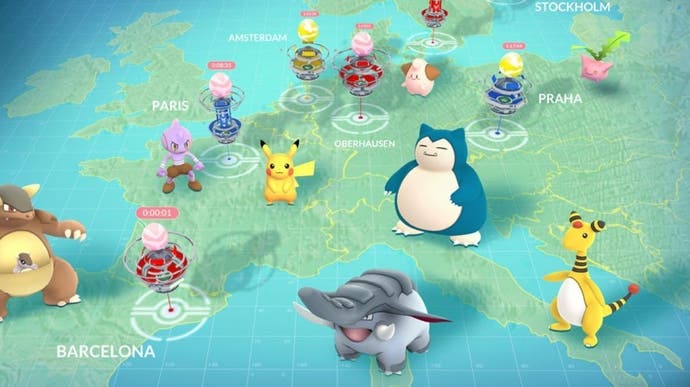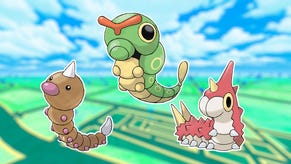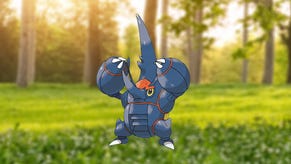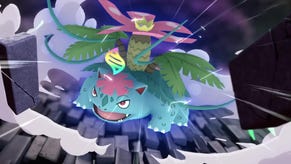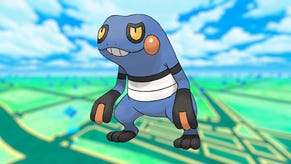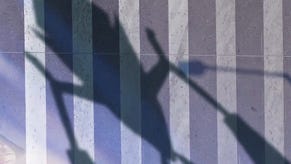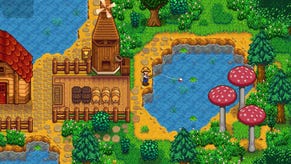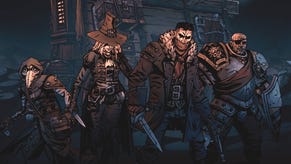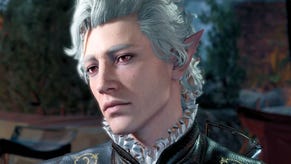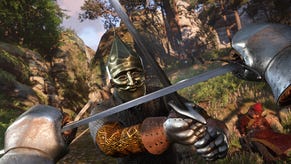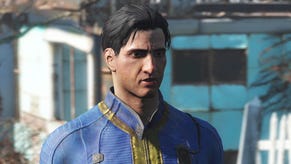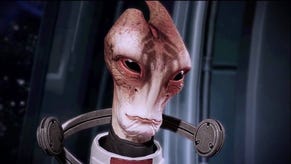Pokémon Go's next five years: plans for the future of AR, and when the game runs out of Pokémon
A chat with Niantic, now this summer's dust has settled.
This weekend sees the Pokémon Go fan community finally descend upon Liverpool, for the game's first ever UK Safari Zone. Of course, this event was supposed to happen last year, back in March 2020, but the world had other plans.
Now rejigged as a hybrid event, where players can travel to Liverpool's Sefton Park or play remotely, this revived gathering is another stepping stone back to "normality" for a game which has been forced to make huge changes over the past 18 months - but which has emerged still as popular as ever.
This summer has also marked Pokémon Go's fifth anniversary - a milestone for any live service game, not least one which has had to face such an existential threat to its typical gameplay and then an enormous player protest as developer Niantic began steering the game back out the other side.
I was keen, then, to sit down with Niantic for a catch-up to commemorate Liverpool weekend, recap the summer but also look forward to the game's next five years. For Pokémon Go fans, I tried to cover as many of your burning questions as possible - EX Raids, Kecleon, and future Community Day candidates. I also wanted to hear more about the longer-term future of Pokémon Go as a pioneer of Niantic's plans for a real-world AR metaverse - and our chat was well timed, on the day that new PokéStop powering up gameplay rolled out into public testing.
Joining me on video call from Liverpool this morning were director of global product marketing Michael Sterenka and EMEA product marketing manager Philip Marz.
In-game events
Are you guys here in the UK right now? Are those Liverpudlian trees I see in the background?
Michael Sterenka: Yeah, we're officially in Sefton Park! We just did a lap around the venue, it's looking beautiful.
Philip Marz: We just gathered the team and did an introductory tour with them and introduced them to our local partners from Liverpool City Council - since only some of us have spoken with them so far. And yeah, we are doing the final tweaks now before welcoming the attendees tomorrow.
I had wanted to go - I've been to in-person events all over the world and really miss their atmosphere - but unfortunately the rescheduled dates were ones where I just already had plans. Still, for those who are going this weekend, what can they expect?
Michael Sterenka: Obviously this event is a reschedule of the event that we announced and sold tickets back in March of last year. Due to the global pandemic we really want to be sensitive to all of our players' individual preferences in terms of comfortability and travel and so we've enabled the gameplay globally on the event day that you have a ticket for. For those players who are comfortable coming to the park, we have some really amazing, fun in-person experiences to partake in - we have a huge merchandise booth with with Pokémon centre merchandise, there's going to be photo ops with Pikachu, Eevee and Snorlax, and different swag and stuff to take home. But honestly, as you mentioned, we always feel like the most important and the most fun part of the live events we put together is just being able to see so many other Trainers out having a great time exploring a beautiful park together. It's that real world social experience that is the hallmark of Pokémon Go - what makes the game so special and what makes the community so special.
And in terms of gameplay and spawns, it is the same as the 2020 event originally you planned?
Michael Sterenka: Yeah, as far as the content goes, it's very similar to last years. When we planned the event originally and we did the sort of global [makeup] version of that on the original event weekend, we didn't want to shortchange people from what the original intent was. We are looking at that and making sure it's not completely identical, but the primary content will be the same.
I'm guessing Professor Willow will have some new things to say?
Michael Sterenka: Yeah, totally.
So how are you looking at events for 2022 and beyond? This hybrid event type is popular, we've seen that with Go Fest the past couple of years now. Or would you like to go back to events built specifically to be enjoyed in-person?
Michael Sterenka: It's really interesting, right? The pandemic forced our hand in many ways to try to adapt things like Go Fest to the current situation, to come up with new concepts like Go Tour Kanto. And clearly that's been something players around the world have shown a huge amount of interest in and have loved over the past few years. I think, from our perspective, the success of that, and the global demand for those experiences actually comes off the backs of those in-person bespoke, you know, really premium experiences we've built over the years with the in-person Go Fests and Safari Zones and whatnot. As soon as we're safely able to, our goal and our vision is to go back to those extreme premium in-person live events. But we do think there's always going to be an appetite for the global version as well. So moving forward, what you'll probably end up seeing is even more of a hybrid than we've seen in the past. This year we did more of a 20 city light activation approach [to Go Fest], but our vision long term is to get back to what made these events special to begin with.
It sounds like people will still be able to play remotely but you do want to revive those very curated experiences within big city parks and such where you do get that festival atmosphere?
Michael Sterenka: Yeah, we don't have specific details to share on those just yet, but directionally we are looking at what that right balances are of incorporating the in-person major experiences at a large park, compared to the global experience everybody can participate in.
Philip Marz: Talking EMEA [Europe, the Middle East and Africa] in that context, just to do add, without spoiling too much at this point, both event formats - Go Fest and Safari Zone - will also play an important role in EMEA next year. There will definitely be opportunities next year for you to join in, in the region.
PokéStops power up
Moving away from events now and onto the future of the game - today brought the new PokéStop power-up feature, which is being tested in New Zealand. Can you shed a bit more light on what the thinking is behind it and when it may launch elsewhere?
Michael Sterenka: Yeah, that's a feature we're really excited to roll out globally. Obviously, with any new feature that leans heavily into technology, and in particular AR technology, it's something we want to rigorously test before we release it to the entire world - to make sure that there aren't any bugs, but also to make sure players are engaging and actually enjoy what that feature is able to provide. Based on how the tests in different markets go, we are looking to roll that out globally as soon as possible. We also made an announcement earlier this week that there are other things within the game we want to begin testing and in different regions to optimise gameplay globally. So that's something that you're going to start to see more of in Pokémon Go in the coming months and years is more rigorous testing in smaller environments before something hits the global market.
The PokéStop power-up feature's gameplay loop of uploading AR scans is not particularly Pokémon-y. Obviously Go has always been a blend of AR and Pokémon, but this feels much more of the former.
Michael Sterenka: We've always viewed augmented reality as foundational to Pokémon Go. Obviously, when the game first came out in 2016, the concept of augmented reality was a lot different than what it is today. That technology has evolved over the years and we really see AR as a future technology paradigm shift that will take place - it's not a matter of if that paradigm shift happens, it's a matter of when - and we want to make sure that when that paradigm shift happens, Pokémon Go is still at the forefront of that new wave of AR technology. And features like the PokéStop power-up will enable Pokémon Go to continue to stay top of mind and the gold standard for AR games.
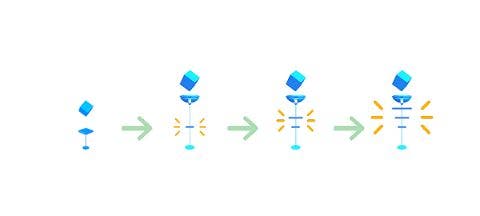
I get that, and of course, Niantic has big plans for the future of AR which are fascinating. But I've also seen comments from Pokémon Go players now who aren't sure what this may add to the game for them now, beyond the PokéStop bonuses it immediately unlocks.
Michael Sterenka: The way we've always approached our AR features in Pokémon Go is more of an optional approach, right? For example, Go Snapshot, you don't have to spend your time setting your phone into AR mode and taking photos of Pokémon. But we see thousands of players around the world who really love that feature, and their Pokémon GO experiences going to their local park or the downtown area and setting up a fun AR multiplayer photoshoot with their Pokémon. So these types of features - we totally understand - are not the types of features that every player is going to gravitate to immediately. But we do think that the augmented reality possibilities that can be unlocked in the future, by leveraging a 3D map of the world is something all Pokémon GO players are actually going to love, once we're able to to fully actualise that concept. And again, I think what I would be excited about as a Pokémon Go player isn't necessarily what's right here and now in augmented reality, but it's knowing that in the years to come, there will be that paradigm shift. Augmented reality is going to be the type of technology that is just seamlessly integrated into our daily lives and when that happens, it'll be great to know Pokémon GO can continue along with you on on that journey.
The future of Pokémon Go's core features
Moving onto gameplay features which reflect the core Pokémon games, it's been interesting to see the rollout of form changes recently for Furfrou. Obviously in the main games many Pokémon change their forms - is this also going to be the case in Pokémon Go?
Michael Sterenka: We don't have anything to announce on that now, but it is something the team is actively discussing and looking forward to revealing more in the coming months on what other Pokémon the form changes will apply to.
Is there a discussion around bringing form changing to existing creatures in Pokémon Go, or do you see the feature as something for newly-released Pokémon only?
Michael Sterenka: That's definitely not something that we're able to allude to in this interview today, but something that we're actively discussing.
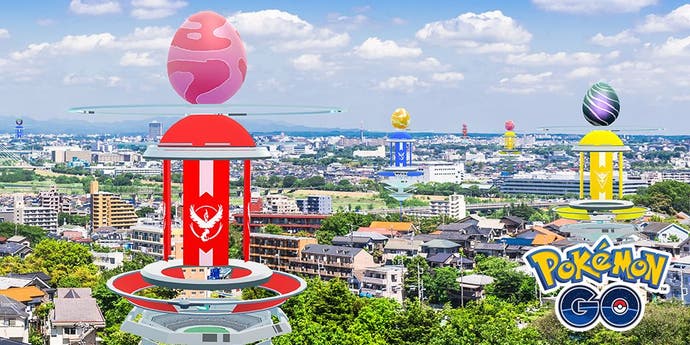
In terms of other core Pokémon mechanics - I'm sure you've seen fans still have lists of things they'd like to see included like Pokémon breeding and secret bases. It's been a while now since the last big gameplay pillar was added to the game, something of the size of GBL battles and Team Rocket. Is Pokémon Go feature complete in that regard or will more big gameplay additions launch?
Michael Sterenka: It's definitely not feature complete - you know we always talk about Pokémon Go at Niantic as a forever game. And for us that means the game will evolve over time. And it needs to evolve over time in order to make sure that it's still fun and engaging and fresh and new for players. So, definitely nothing to announce at this moment in terms of upcoming major features, but I'm very happy to say the game is nowhere near feature complete and it won't be for many, many years.
The return of EX Raids is something fans are still looking forward to - is there anything you can say today on where you're at with bringing those back?
Michael Sterenka: Nothing to announce at this moment on that one.
How about potential Pokémon you might have waiting in the wings for EX Raids, before they were put on hold? Who might be in them when they return?
Michael Sterenka: [Laughs] Yeah again, unfortunately, nothing to announce on that.
A look back at the summer, and the future of Community Days
This summer was obviously an interesting one for Niantic, with the PokéStop distance change debate and everything that followed. I wonder, now the dust has settled a bit, how everything feels now.
Michael Sterenka: That was definitely a major point for Niantic and the community as a whole. I think our biggest takeaway wasn't necessarily to do with the PokéStop interaction radius itself but rather how we communicate with with players and so coming out of that taskforce, one of our big takeaways was a commitment on frequency of communication, type of communication, and that's something we are very much taking seriously on our side and something we are looking forward to hold true to. And so later this month, we're going to release the first of a developer diary series and we're having regular monthly conversations with community leaders around the world. It's something we're really interested in continuing to improve on over time and we're always open to feedback on on things like that from our players.
[Laughs] I saw some comments on SilphRoad on 1st October that you hadn't yet done the promised October blog post - I'm looking forward to reading it. Do you think you'd ever share more on the methods for picking Community Day Pokémon? It's such a big focal point for the playerbase each month, but some of the choices are often a little leftfield. (I was happy with Duskull this month but any time you want to do Litwick, that's fine.)
Michael Sterenka: Yes - we actually are planning to openly discuss more how Community Day is handled and and selected internally here at Niantic. No news to share on that today but what I what I will say is, going back to what I mentioned earlier, we do look at Pokémon Go and talk about it as a forever game, right? And so once you start thinking about the product from that lens, it changes how you might plan out what Pokémon to feature not just for Community Day, but for our different live ops and events that happen on a regular basis. But yeah, it is something we are planning to share more openly with the community, per the commitment we made in August this year.
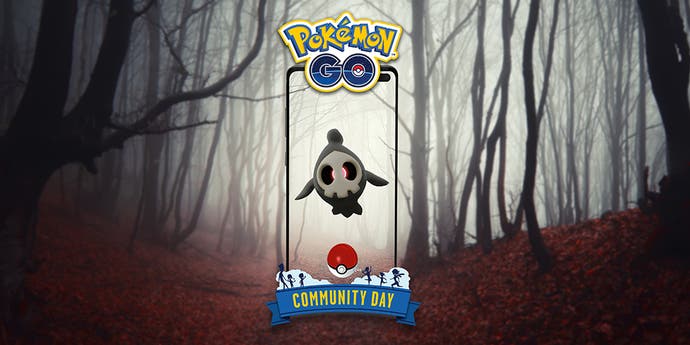
Which topics you're keen to fill the community in on?
Michael Sterenka: We're definitely trying to plan that roadmap out in terms of the developer diary series. It's also something we're always looking for player feedback on and feedback from community leaders that that we talked to on what are the things that people want to hear?
Philip Marz: What's also important is to not only focus on the global perspective, but also give it a kind of regional tweak, because what we also learn and know from communities is there are different kinds of needs across the globe, dependent on your local cultures, regional specifics, and so on. We are all playing the same game, but to different extents. And as part of that, actually, we are also working on [more countries]. I'm sure you're aware the game has been silently launched in other markets such as Russia recently and we are also intending to bring the game and make it accessible to even more markets throughout the globe. This is also something we evaluating and monitoring - there's many, many kind of principles that need to be considered here, but we are not only looking at growing the game itself and making it a "forever game" from a organic and internal perspective but also from an outside one to really ensure we reach every last Pokémon fan all around the world.
On that - any word on China?
Philip Marz: On China, actually there's nothing we can speak about today.
We need to talk about Kecleon
Kecleon the chameleon Pokémon is the last creature left out of all the first three generations not to be released in Pokémon Go. Fans have been waiting for it for years - when will we finally see it?
Michael Sterenka: That's a great question. I don't have anything to share on that front today but we have definitely seen the feedback. It's certainly top of mind for us. Kecleon is definitely a special Pokémon, one that has unique attributes in the main series games, as you know, so the release of that Pokémon is not something that we want to treat lightly. We want to do right by the things that make that Pokémon special.

What's next?
Route mapping is a feature which seemed relatively far along when it was spotted by fans recently in a datamine. Is there anything you can share on a launch for that?
Michael Sterenka: Nothing to share at this time, especially on things that were more revealed via data mining. [laughs]
I believe it's in Ingress, or a similar version of it is in there. Philosophically, does it fit Pokémon Go, do you think?
Michael Sterenka: I would say philosophically, Pokémon Go is all about exploration and exercise, and pretty much everything we try to do will be to encourage players to do that. That's feature agnostic and the lens that we put on, anytime we're developing a different event or experience or feature. Is this going to get players out into the real world more, discovering new places in their neighbourhood or even travelling to new places to discover things? And to get players face-to-face. Pretty much any feature that you see come from us will be focused on those core pillars.
How much do you gauge fan feedback for future features? Would you ever look to a fan vote for ideas? What determines how Pokémon Go expands next?
Michael Sterenka: I'm not sure we would go as explicit as as a fan vote. But Niantic is comprised of lots of Pokémon fans so we're constantly taking a look at player feedback and public channels, and as I'm sure you're well aware, there there's no shortage of awesome ideas out there that people are throwing out. A joke I always hear people say is 'everybody's a game designer', right? No matter what career path you're in, everybody puts on their own game design hat and sometimes people come up with really fantastic ideas. So if players have something that they really would love to see in the game, definitely speak up about it and you know, it would for sure catch our eye.
But on our side it's just a matter of prioritisation. There's only a finite amount of resources in the company, and we want to make sure that the type of product we're building is one that's built for everybody. I think that's often sometimes [where] things can can be lost. We're trying to build something that both I play, who has loved Pokémon since it came out in the 90s, but that also my mum, who is someone who knows nothing about Pokémon but can also hop in and really enjoy the game for the different benefits that provides, plays too. That's something we're always trying to keep top of mind and not lose sight of.
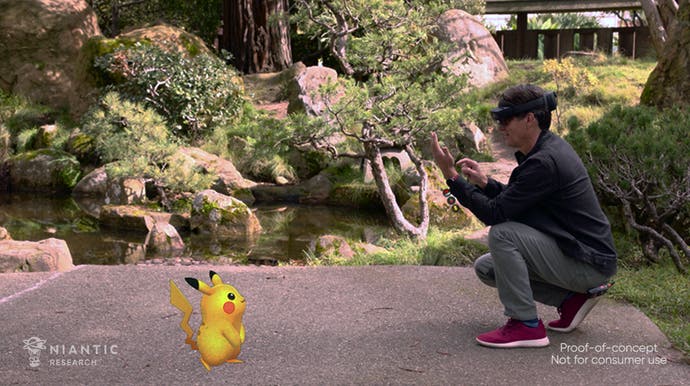
Pokémon Go is five years old and, even despite everything in the last 18 months, it is still fantastically popular. What excites you about the next five years of Pokémon Go?
Philip Marz: Personally, I think it couldn't be more exciting today than it's ever been, given the special memories we have collected over the past five years - no matter if it's the evolution of the game itself, or the experiences we've had along with it. And also the challenges that we have recently confronted, that led us to define a different approach on running the game as well. All this has just made us stronger, even more inclusive and diverse in the way we can actually be involved, and be engaged with the community at the same time. And given everything we have discussed, with the things that we can look forward to, from a technology standpoint we are far from the end of the tunnel. Also from a content standpoint, even if there's a limitation in terms of the Pokémon that are still available, there's a couple of different other initiatives we are thinking about to keep the momentum going, actually, and really pay into that mission and ambition to make Pokémon Go a forever game not only for the next five years, but maybe 10-15. Who knows, actually, but I think the record of the past five years has put us in a great position to continue that momentum.
Michael Sterenka: Totally agreed on my part. Being able to work on a game like this over the past five years is a Pokémon fan's dream come true, and being able to see into the future, what we have planned and know that we've only begun to scratch the surface of what this game can be and what the vision for this game is, is something I'm personally very excited about. And the last thing I'll say on this is, the fact that Pokémon Go is a product rooted in the real world as an augmented reality game means there's always real world things we need to adapt to and evolve with. And that keeps things very fresh and exciting. You know, this past year and a half has not been easy for anybody, let alone Pokémon Go where it's a product all about going outdoors and exploring. That was something that was impossible for many players, especially at the start of this. But seeing how the team is able to band together and adapt to the real world environment of what's happening is something that's super inspiring to me, and it's something that makes me excited for the future of this game because as the world changes, that Pokémon GO will change with it.
Philip Marz: This melding of real and digital worlds, I think, has never been more advanced than it is today. What we see in Liverpool, here over the weekend - unfortunately, not you -
Ah, rub it in!
Philip Marz: [laughs] I know, but this is really what makes the difference. It's about always having this visual world in front of you, and you can participate if you want by just opening the app and joining in, or just by passively walking through but still interacting with the physical experiences we are creating. We have set the benchmark I would say, not only for ourselves, but also for what others might intend to do moving forward, in connecting the real world to the digital.
